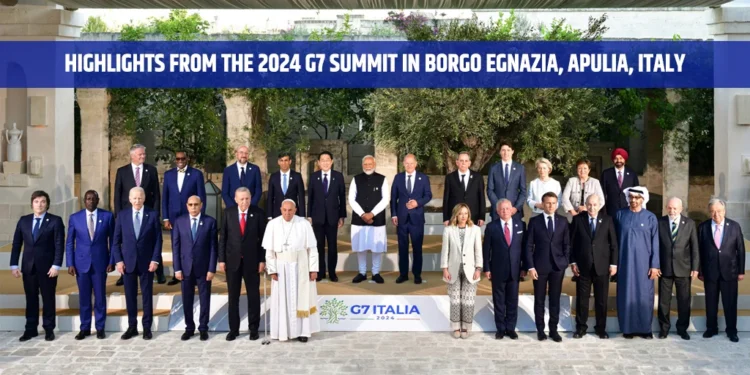The Group of Seven (G7) has long been a cornerstone of global economic governance, representing a coalition of advanced democracies committed to coordinating policies and addressing global challenges. In the evolving landscape of the new world order, marked by geopolitical shifts and the rise of emerging powers, the G7’s role and relevance are being redefined.
Historical Context
Formed in 1975 to address economic crises, the G7 initially comprised the United States, Canada, France, Germany, Italy, Japan, and the United Kingdom. Over the years, it has expanded its agenda to include international security, climate change, and artificial intelligence (AI), reflecting its adaptation to changing global realities.
Key Objectives and Functions
The G7’s primary objectives include economic policy coordination, international security discussions, commitment to climate change initiatives, and the development of frameworks for emerging technologies like AI. It aims to promote a stable and prosperous global economy through cooperation among member states.
Structure and Working Mechanism
The G7 operates without a permanent secretariat, and its presidency rotates annually among member states. The host country sets the agenda and organizes the summit, with preparations involving meetings of ministers and envoys known as sherpas. While the G7 lacks enforcement mechanisms, decisions made during the summit are typically followed up by national governments.
Challenges and Responses in the New World Order
The G7 faces challenges from internal divisions and external pressures, particularly from rising powers like China and Russia. To maintain its relevance, the G7 must adapt to the changing global landscape by considering structural and cultural changes along multipolar lines. This includes engaging with emerging powers and addressing issues of economic disparity and environmental sustainability.
Recent Developments and Future Prospects
Recent G7 summits have focused on key issues such as climate change, economic resilience, health security, and sustainable development. The 2023 summit in Hiroshima, Japan, launched the “Hiroshima AI Process” to develop a common framework for AI governance. The 2024 summit in Italy is expected to address conflicts in Gaza and Ukraine, migration, climate change, and AI, highlighting the G7’s continued relevance in shaping global policies.
The G7 remains a crucial forum for coordinating policies among the world’s leading democracies, despite facing challenges in the new world order. Its ability to adapt to changing global realities and effectively address internal divisions and external pressures will determine its future relevance in tackling modern global challenges. As a pillar of global economic governance, the G7 plays a crucial role in shaping international policies and responses to global challenges in the new world order.
















